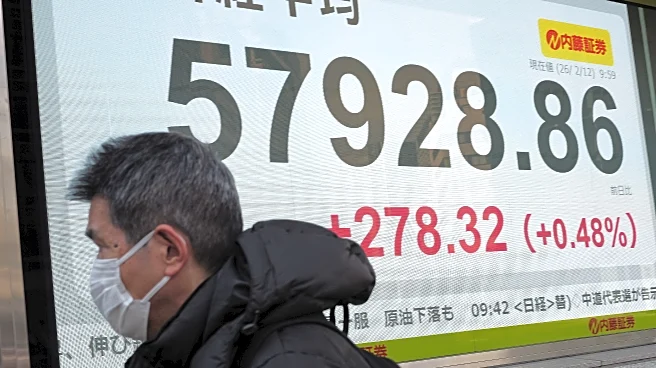What's Happening?
DeepSeek, a Chinese AI lab, has gained significant attention after its chatbot app topped the Apple App Store and Google Play charts. The company, backed by High-Flyer Capital Management, has developed AI models using compute-efficient techniques, raising questions about the U.S.'s ability to maintain its lead in the AI sector. DeepSeek's models, including DeepSeek-V2 and DeepSeek-V3, have performed well in AI benchmarks and are cost-effective compared to competitors. However, U.S. export bans on hardware have forced DeepSeek to use less powerful Nvidia chips, impacting its operations. Despite these challenges, DeepSeek's models have been widely adopted, with over 500 derivative models created by developers.
Why It's Important?
The rise of DeepSeek highlights the competitive pressures facing U.S. AI companies as they contend with innovative foreign competitors. The company's success has led to significant market reactions, including a drop in Nvidia's stock price and calls from U.S. officials to ban DeepSeek on government devices due to security concerns. This development underscores the geopolitical tensions in the tech industry, as U.S. companies and policymakers grapple with the implications of foreign AI advancements. The situation also raises questions about the sustainability of U.S. export restrictions and their impact on global tech innovation.
What's Next?
The U.S. government is likely to continue scrutinizing DeepSeek's activities, with potential bans on its use in government devices. Meanwhile, DeepSeek is expected to release improved models, further challenging U.S. tech dominance. The ongoing competition may lead to increased regulatory measures and strategic shifts by U.S. companies to maintain their market positions. Additionally, the situation could influence future U.S. policy decisions regarding tech exports and international collaborations.
Beyond the Headlines
DeepSeek's rise also highlights broader ethical and cultural implications, as its models are subject to Chinese government regulations that enforce 'core socialist values.' This raises concerns about the influence of state-controlled AI on global discourse and the potential for censorship. The situation exemplifies the complex interplay between technology, politics, and culture in the digital age, prompting discussions about the ethical responsibilities of AI developers and the role of government oversight in tech innovation.












